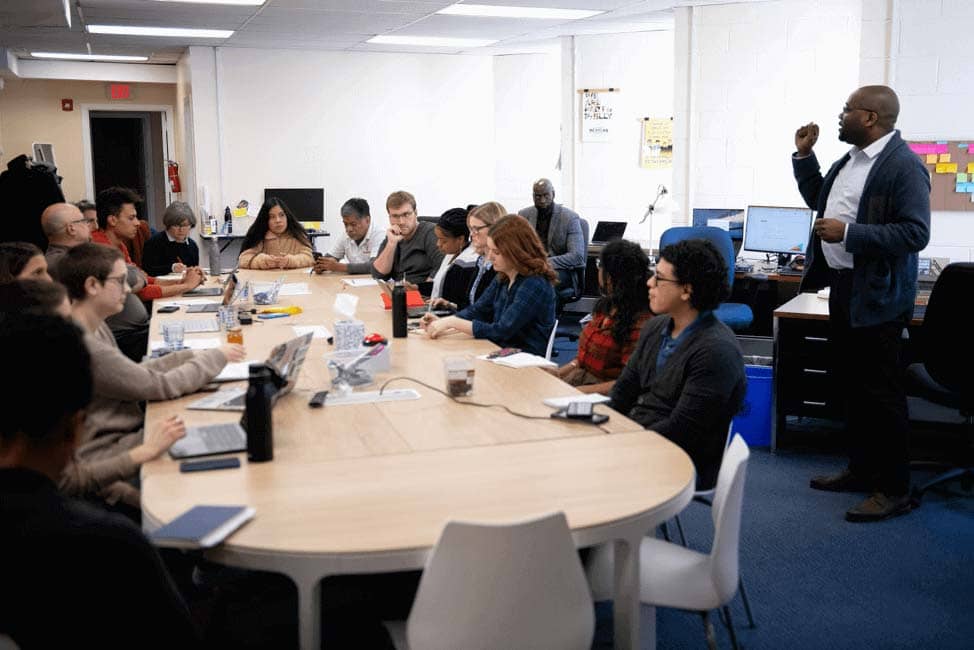Case Study

Broke in Philly, a collaborative reporting project on solutions to poverty and economic mobility, began in 2018. Building on the groundwork laid by the Solutions Journalism Network-supported Reentry Project, which forged a pioneering network amid a highly competitive local news ecosystem, Broke in Philly supports the work of newsrooms from across Philadelphia to bring reporting on a critical topic out of the margins and onto the front page.
More than two years later, the collaborative now features 25 partner organizations, including broadcast TV and radio, legacy newspapers, digital-first outlets, community media, academic institutions and everything in between. Led by Resolve Philly, an independent non-profit organization, Broke in Philly has produced nearly 1,000 articles, videos, broadcasts and more, with new contributions being published weekly.
In 2019, the partners came together to plot the future of the collaborative. The group considered whether to switch up their topical focus just as they had moved from prisoner reentry to poverty. But they quickly doubled down to extend Broke in Philly through 2023, realizing that economic mobility reporting touches every corner of the city they call home. Rather than think of it as a single topic, for these newsrooms economic mobility is a lens through which to view the multitude of issues and solutions their audiences encounter. This is evident in Broke stories that focus on homelessness and jobs as well as connect the local economy to immigration and education.
Perhaps most importantly, the teamwork of its partners has begun rebuilding trust between newsrooms and their audiences by shifting narratives about the country’s poorest big city. Broke in Philly’s community engagement strategy has focused on raising the voices of local residents through in-person and online discussion forums, partnerships with community advocacy organizations, and targeted outreach to underrepresented groups. This has included using SMS and online surveys to determine neighborhood information needs and responding directly to them with reporting and educational events. For example, in 2020, Community Engagement Editor Derrick Cain learned through his Speak Off listening tour that residents in one North Philly neighborhood were yearning for information about wills and estate planning. Then-Broke in Philly editor André Natta pitched a service- and solutions-focused story idea to the partners, which was picked up by the Inquirer, and Cain put together online workshops with an estate planning attorney for the residents to fill that need.
By focusing on collaboration and solutions, Broke in Philly continues to produce journalism that both exposes the systemic sources of poverty and provides actionable information to those facing it every day.